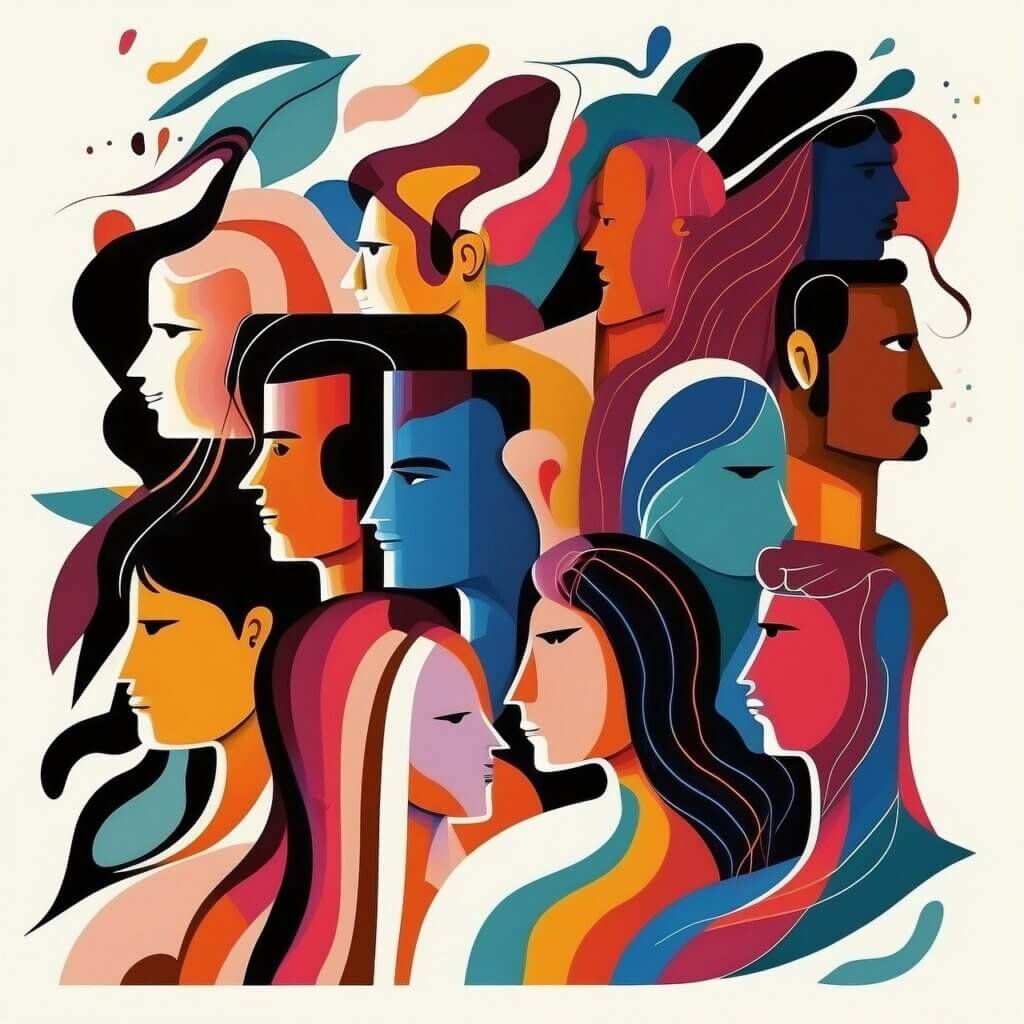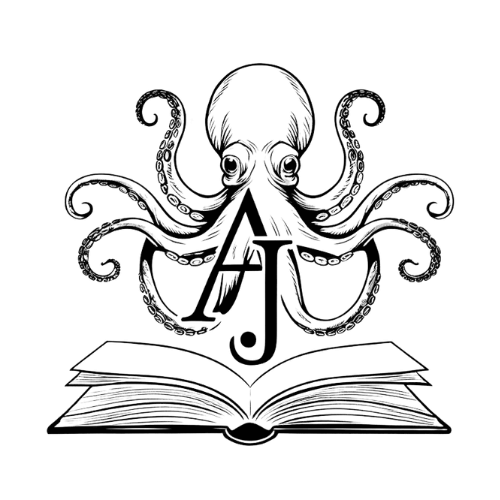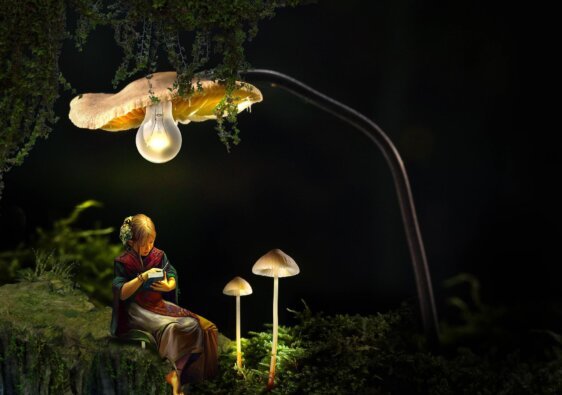Why is The War of Art such a highly recommended book in writing circles?
I’ve only ever thrown out two books. (Yes, I should have recycled them, apologies.) One of them was a science fiction paperback written in the 1980s that was rife with sexist and racist characters. The other was The War of Art by Steven Pressfield.
The War of Art is a book on writing and creativity that I have seen recommended time and time again by well-meaning writing circles and prestigious writing communities. (At the time of writing this post, The War of Art ranks as the #2 Most Gifted book in Creativity and Genius on Amazon.) Originally published in 2002, It’s touted as a book to help you break through resistance and put the pen to the page; a book that inspires. But that is not what I found when I started reading this book. Instead, I experienced that sort of jaw-dropping dread that resulted in me continuing to read just to see where the trainwreck was heading.
So, I have to ask, why is it so frequently recommended?
When I first started reading this book, it seemed inspirational at the beginning: Resistance is what makes it hard to sit down and write; break through that, and you’re on your way to making progress on the life you were born to live. All right, I can get behind that.
But not much further beyond that, Pressfield argues that resistance is the root of more unhappiness than poverty, WWII wouldn’t have happened if Hitler had just followed his artistic pursuits, artists are “born in the right place,” ill health is an excuse not to create art, and ADHD, depression, and anxiety are made up by big-pharma and, again, are just excuses and another manifestation of resistance. And my personal favourite: “Our wife may really be in her eighth month of pregnancy; she may in truth need us at home. […] What Resistance leaves out, of course, is that all this means diddly.”
None of this sounds like an inclusive welcoming of diverse artists.
To me, this whole book read as a manifesto from a place of privilege—and being blind to that privilege.
A quick note: I generally try to keep my blog free from controversy and negativity, but I can’t help but show my true colours here. I will always advocate for diversity and inclusion in the creative space.
~AJ
Let’s Break it Down: What Does the Book Actually Say?
The main argument of The War of Art is that the main thing that prevents creatives from making art is internal resistance. This sounds accurate; the hardest part of writing can be sitting down to write. But what the book proceeds to do next is list all the “excuses”—all the reasons people fabricate to explain why they’re not making art; these, he argues, are all just forms of Resistance (yes, he uses a capital R). The key then, is to acknowledge that these are all just excuses and the antidote is to “declare resistance evil” and bludgeon your way through it; effectively, you wage war.
But the sources of resistance that he details are offensive and disregard the lived experiences of SO MANY individuals.
Want An Example?: Resistance and Trouble
In the section “Resistance and Trouble,” (p.24) Pressfield argues that “trouble” is just a fabrication that is really a manifestation of Resistance. The “trouble” he lists includes addiction, rap music (yes, I’m confused too as to whether he meant this literally), cruelty, and the “willing endurance of cruelty from others,” and ill health.
I cannot read this without the sense that he is discounting the experiences of individuals with disabilities, chronic illnesses, addictions, and people in abusive situations. By claiming that these are all manifestations of resistance, he is essentially saying that these people have done this to themselves as a way to avoid living up to their true potential. I find that conclusion nauseating.
My day-job is as a healthcare provider. I work in diagnostics. I can assure you, people don’t just make this stuff up and it’s certainly not an excuse to avoid living fully. In addition, I had severe ulcerative colitis for eleven and a half years. For those who don’t know, ulcerative colitis is like the more treatable cousin of Crohn’s disease. (By “more treatable,” I mean they can surgically remove your entire large bowel to get rid of it, while surgery can help but not eliminate Crohn’s.) It was during this time period (when I was in severe pain and on medications that made me so fatigued I had to sit on a chair in front of the oven in order to cook a dinner) that I wrote my first novel. And a novella. My health didn’t prevent me from creating, but there were absolutely days when the brain fog and fatigue and pain were so bad that I couldn’t write. I didn’t get through the creative process by discounting my health. I got through it by allowing myself the grace to take care of myself when I needed to. This is NOT what Pressfield is advocating.
How About Another Example?: Resistance and Self-Medication
Even the title of the section “Resistance and Self-Medication” is misleading and cruel. Here, Pressfield lists legitimate mental health conditions such as ADHD, depression, and anxiety and then claims that “these aren’t diseases, they’re marketing ploys.” This is obscene and even typing this gets my blood boiling. Needing medication for mental health doesn’t “blot out our soul’s call” (p.26) (as he states). I will ALWAYS advocate for mental health and seeing this written in a highly recommended book is infuriating. These sorts of statements only increase the stigma around mental health; this is a barrier we should be breaking, not shoring up.
One more: Resistance and Rationalization
In the section “Resistance and Rationalization,” Pressfield claims that this is a particularly insidious form of Resistance because people can come up with legitimate reasons why the resistance is valid. (Ironically, that’s presumably what he’d say I’m doing while writing this blog post.) One of the examples he gives of this is what I mentioned earlier: “Our wife may really be in her eighth month of pregnancy; she may in truth need us at home.” (p.55) However, he states this is legitimate, and then immediately discounts it by saying that Tolstoy wrote War and Peace even though he had thirteen children. This is mind-bogglingly narrow-minded, in my opinion. Yes, perhaps if your only goal in life is to create art, you should ignore your wife and children, but if you’d like to be a decent human this is not the path to take. Also, this is very OBVIOUSLY coming from the perspective of a man who writes. What if the wife is the writer? Should she ignore the children? This whole train of thought is riddled with so many holes it makes my teeth hurt.
I could go on, but I’d rather not give this book more of my time.
As a woman writer with ADHD, chronic health issues, and children, I’ve found ways to break through resistance and write, and none of those ways have included beating myself over the head about my “imaginary” states of being or denying those factors. Those factors make me a better writer and a better person. Why should I try to be a white cisgender male “born in the right place” in order to make art?
I recognize that even though some of these factors apply to me, I still come from a place of privilege, and I want to help lift up other writers who don’t. I believe this book caters to a very specific subset of writers and does more to marginalize than to incentivize.
So please, if someone can explain to me why this book is so widely recommended alongside books such as The Anti-Racist Writing Workshop: How to Decolonize the Creative Classroom and Craft in the Real World, I’m all ears.
I appreciate that many writers do find this book helpful in regards to sitting down to write, but personally, I would like to see this book phased out of the recommended reading for writers and I cannot advocate for this book as a resource. I recognize that it has held a place in the writing craft world for many years, but as the writing world seeks to become more inclusive and lift up diverse voices, I do not believe this book has a place in the current landscape.
Thank you for taking the time to read this. I hope that together we can continue to strive to make the writing world a welcoming and safe space for writers of all backgrounds.

*note: All words in my blog posts are and will always be HUMAN Generated*
Reference: Pressfield, Steven. The War of Art: Break through the blocks and win your inner creative battles. New York, NY: Black Irish Entertainment, LLC, 2012.




